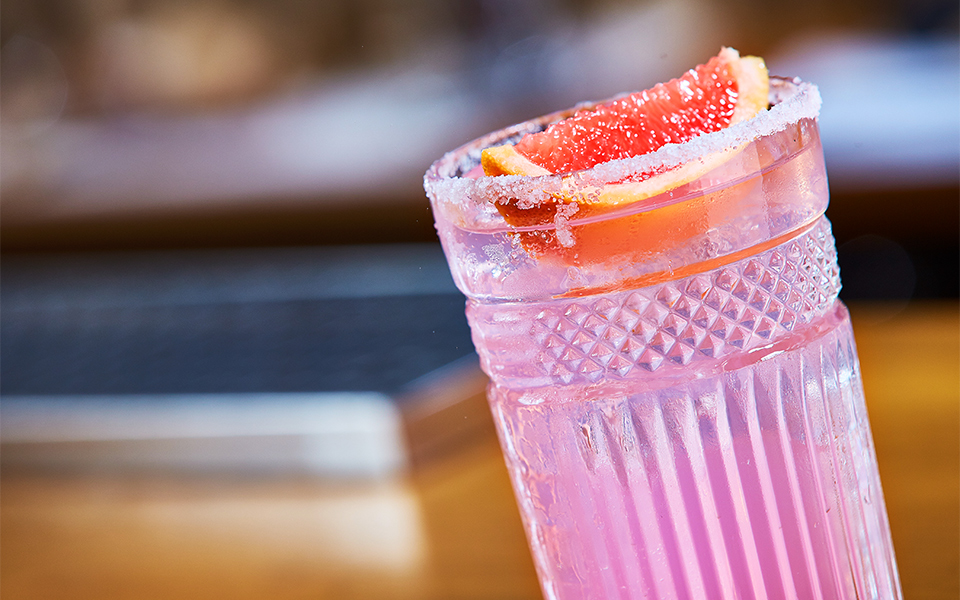By Amber Charmei & Paulina Kapsali
While you might be familiar with some of Greece’s alcoholic beverages, and how they’re often tied to particular regions, it’s a little known fact that the same goes for the country’s soft drinks.
Tourists are often confused when, after ordering a multinational brand drink, they are served something else. In fact, while it’s not reflected by the bill, they are often served something better. Greece’s regional high-quality brands of soda pop, with flavors from the familiar to the exotic, are a widely available everyday treat.
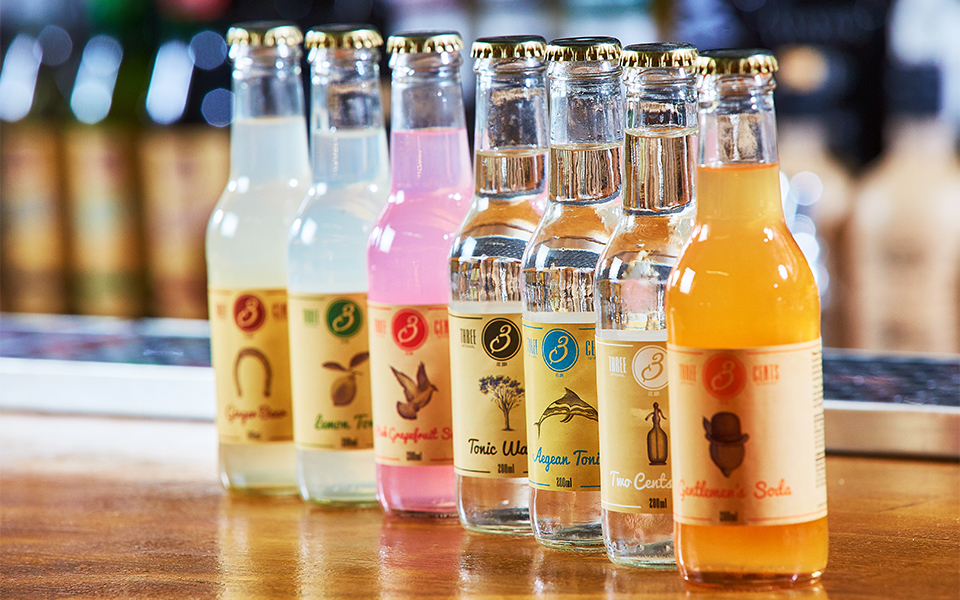
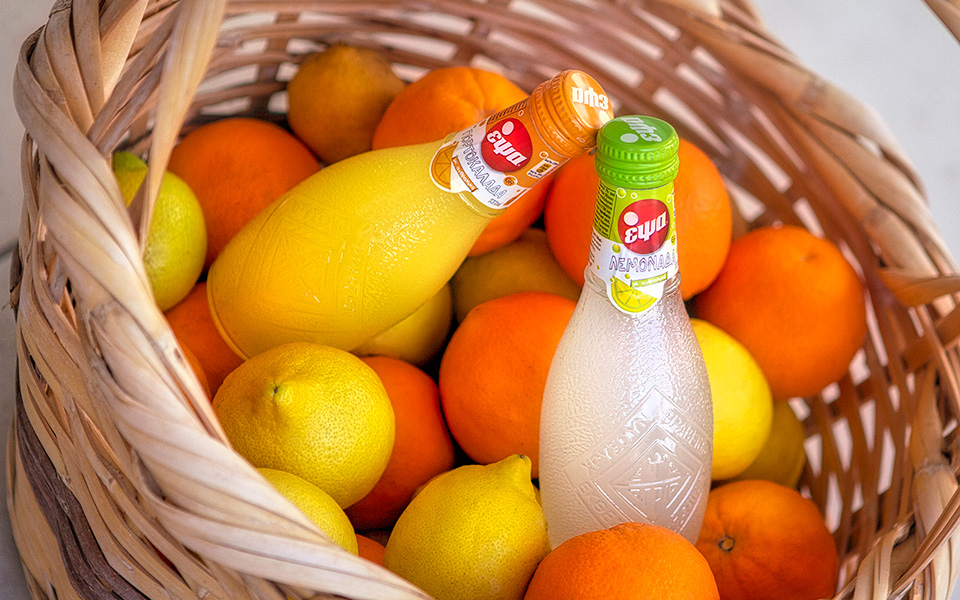
They are commonly made with local fruits, real sugar, and very often even natural local spring water – traits which in other parts of the world would see them labeled as “craft” or “artisanal”, and with a price to match. They could also be considered small batch, even when compared to lesser-known brands in larger countries. But in Greece, they’re a restaurant (and home) staple – often preferred over the multinational brands they are sold alongside.
For a Greek soft drink to be dubbed artisanal, it has to be even more special, like Three Cents sodas which are made to be mixed with alcohol in high-end cocktails (indeed some of the best bars in the world are now loyal customers). But even the most commercial national brands are of impressively high quality, with real fruit juice and little to no artificial colorings.
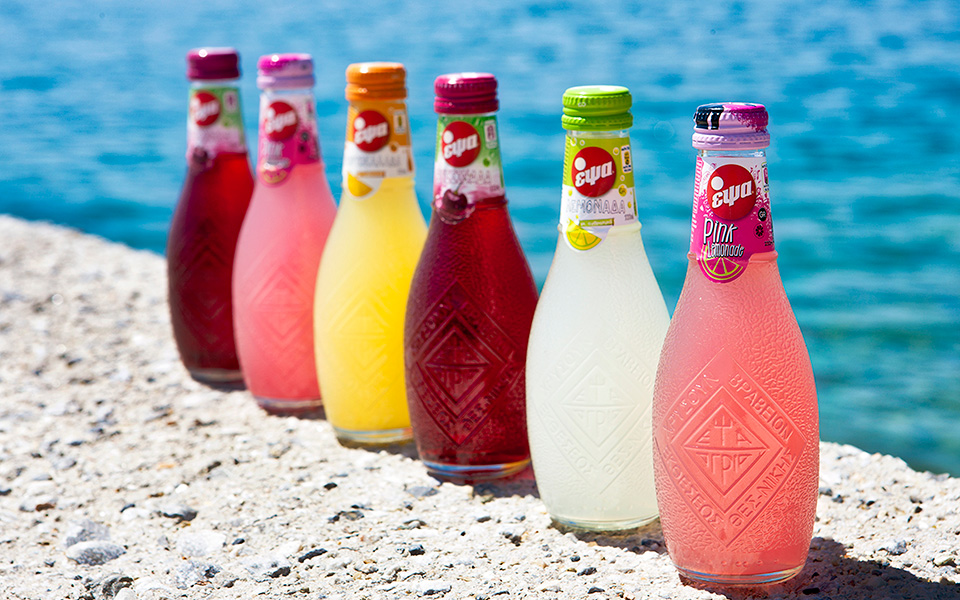
A constellation of flavors both familiar and unexpected
Orangeade (portokalada) is one of the most available soft drinks around the country, produced by almost every brand in still and sparkling versions. Most of Greece drinks it sparkling, but not everywhere. If you order a portokalada in Volos (home to the popular brand Epsa, recognizable by its textured, bulbous glass bottles) it will come flat, unless specified otherwise. You’ll know by the cap; blue for still, and red for sparkling. Some places around Volos don’t even bother stocking the red-capped variety. It generally contains 20% orange juice, beating even the French competition (sorry, Orangina).
Sour cherry soda, or vissinada, matches the orangeades in amount of fruit juice. Tangy, refreshing, and gorgeous cherry red, it is a great favorite with children. Grownups sometimes add a splash of it to a glass of ouzo (although it usually triggers wild objections from others at the table – still orangeade is a more accepted mixer).
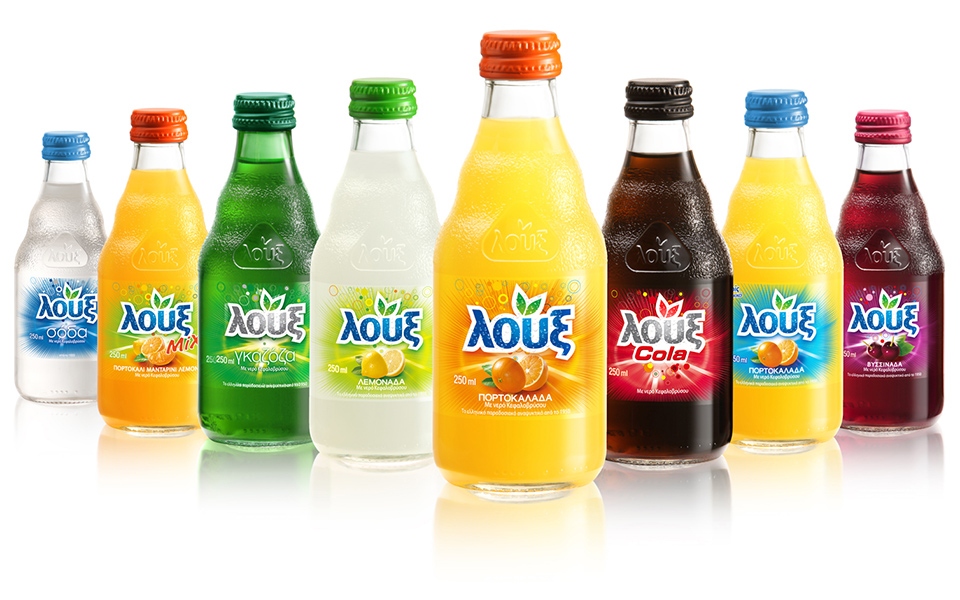
Many regional Greek brands produce their own cola – a refreshing alternative to the multi-national brands, and often made with natural spring water. Cola lovers might also enjoy biral, a soda pop from Crete which looks like cola but has a delicate, sweet caramel flavor.
For those who prefer their soft drinks tangy, the Greek lemonade, or lemonada, has the ideal sweet-to-fresh-lemon-zing ratio, and is cloudy with real juice. Gazoza on the other hand, is completely clear (like sprite). It is sometimes confusingly translated as lemon-lime soda, and while every now and then you come across one with a vague aftertaste of lemon, the word that comes to mind at first taste is actually “Bubblegum?!” Obviously, this is another big favorite with kids.
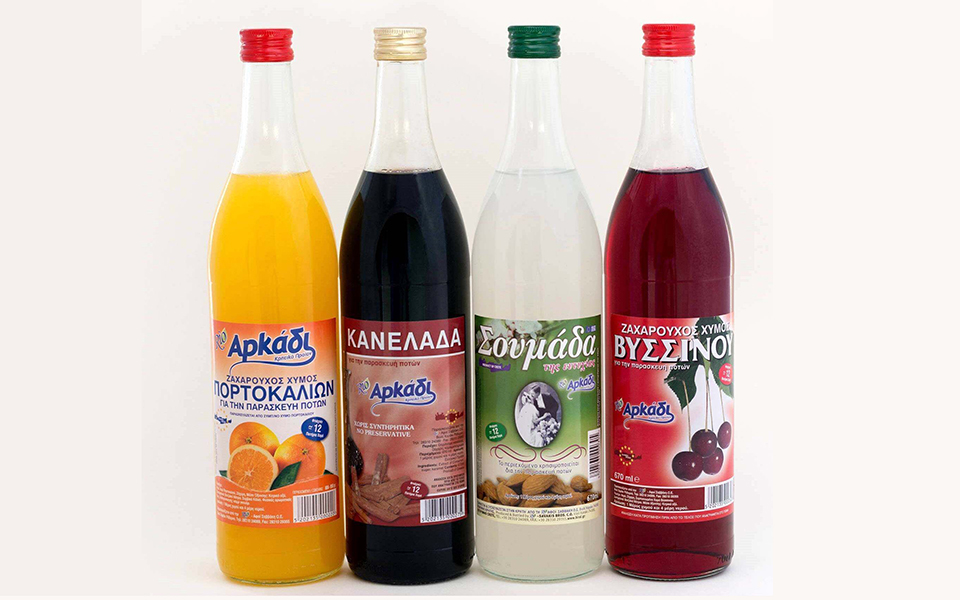
Classic concentrates and innovative flavors
In days when refrigeration was less common, households made their own concentrates (squash) with whatever was plentiful to be diluted with cold water. These are now commercially available, and still quite popular to enjoy either the traditional way, or with sparkling water. Orange, lemon, and sour cherry concentrates mixed with sparkling water make portokalada, lemonada, and vissinada.
More unique is the almond concentrate called soumada. It makes a cloudy white drink usually associated with weddings, and is very popular on the islands of Chios and Nisyros. Some bartenders have taken to using it in place of orgeat syrup, as a way of promoting local products. Kanelada, a bold and spicy cinnamon syrup that is as tasty diluted in hot water as cold, is another island favorite. You can also find cinnamon-flavored ready soft drinks.
Meanwhile in Corfu, the British rule left the island with a legacy of making tzitzibira – the hellenized name for ginger beer.
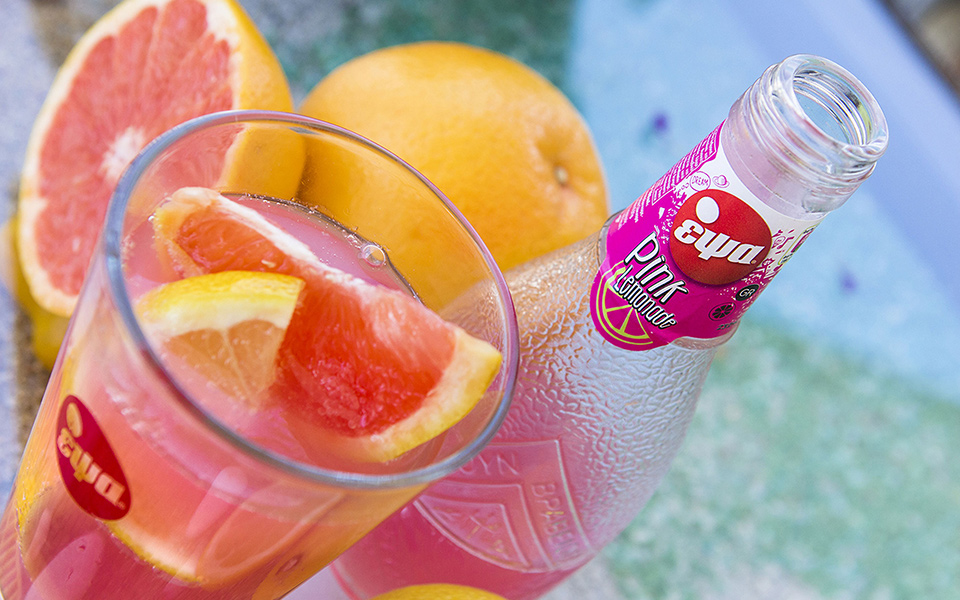
More recently the international craft soda trend has inspired more Greek companies to produce unique and more health conscious sodas, including soft drinks flavored with mastic (a resin obtained from the lentisk tree on Chios) and fruits high in antioxidants like pomegranate. Another trend is for sparkling water to be flavored with aromatic extracts from citrus fruits, or herbs such as lavender and peppermint, without any sugar or sweeteners.
Meanwhile stevia is increasingly used as an alternative to aspartame in diet (or ‘lite’) versions of Greek sodas. Among the champions of this natural sugar-free sweetener is Green Cola which in recent years has been giving the giants of the cola industry a run for their money in Greece.
No matter which flavor is your preference, you’ve probably experienced how the quality of a soft drink is apparent from the first sip. Tasting your way through Greece’s ample local offerings, those first sips will be a revelation. Below is a selection of names to keep an eye out for. There are many more that could be added to the list, but even we haven’t had the pleasure of trying them all!
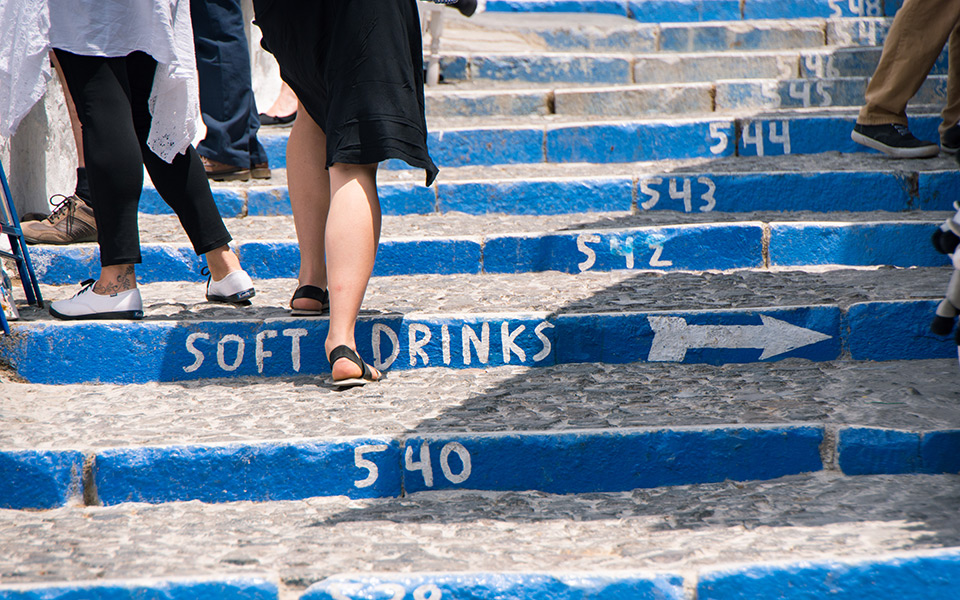
Widely Available Brands
Loux – Patras-based Loux is one of the most famous Greek soft drinks brands. They make their drinks with spring water from Kefalovrissos, local fruit such as oranges from Argolis, and are slowly breaking into the international market, with exports reaching 5% of their annual turnover. You can find Loux sodas at supermarkets, kiosks, and restaurants nationwide.
Vikos – They’re famous for their natural mineral water from Zagorochoria, which is also the base for their soft drinks. The juice from Greek fruits add great natural flavors. Aside from sodas sweetened with sugar, they also make light versions with stevia. Find them at supermarkets, kiosks, and restaurants nationwide.
Epsa – Based in Agria on the Pilio peninsula, right near Volos, Epsa has been producing soft drinks with high juice content and natural products since 1924, and they’re one of the most famous companies in Greece. Find their soft drinks, juices, and ice teas at supermarkets, kiosks, and restaurants across the country. Aside from the drinks themselves, Epsa gets high marks for its quality old-school glass bottles which fit perfectly in the palm of one’s hand and evoke an earlier, more genteel era.
Souroti – Arguable Greece’s most popular sparkling mineral water is a natural product from Souroti, near Thessaloniki. They’ve been in the mineral water game for over 100 years, and recently added three soft drinks to their product list (with no sugar or sweetners). Find them at supermarkets, kiosks, and restaurants nationwide.
Green Cola – New to most, but one of the fastest growing soft drinks companies in the country, Green Cola are most focused on promoting their most biggest seller; a cola drink with natural taste that claims to be healthier than other mass-marketed options. It is made with stevia, and is becoming increasingly popular abroad as well as in Greece. Find it at supermarkets, and selected kiosks and restaurants nationwide.
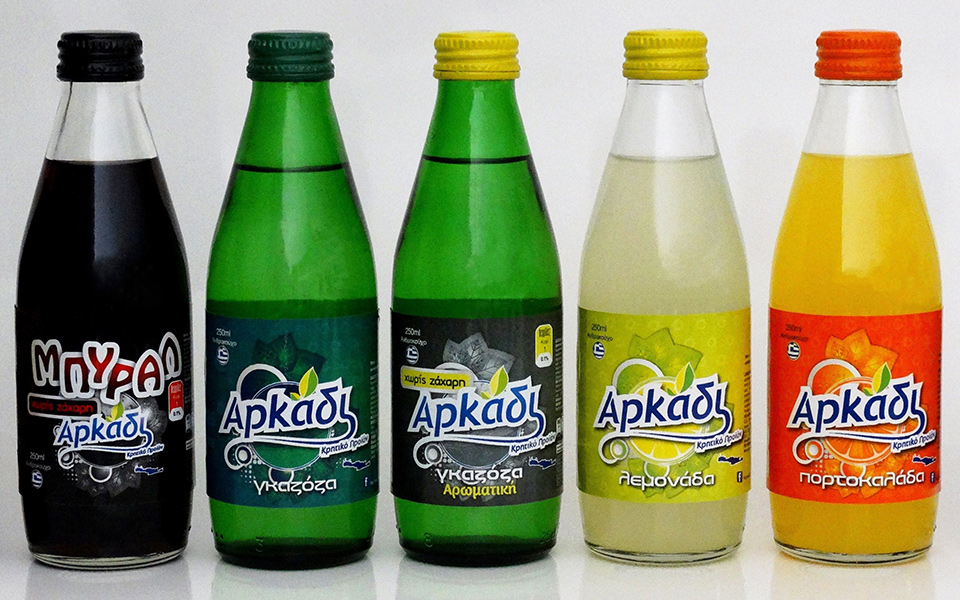
Local / Niche Brands
Temenia – A company that has been producing soft drinks from the natural springs of Temenia in Crete since 1954. Most famous for their traditional “biral”. Find their soft drinks and ice teas at stores and restaurants in Crete, and at selected supermarkets nationwide.
Chimarios – Tsitsibira is one of the most famous products made on Corfu. It is basically ginger beer, and was brought to the island by the British in the 1860. Giorgos Chimarios has been bottling tsitsibira since 1975. It has to be stored in the fridge, as it contains only lemon juice, ginger, sugar, and water, and no additives. Find Chimarios tsitsibira at local stores in Corfu, in Gaios on Paxos island, and at Spyros Kasimis store in Chalandri.
Arkadi – Another brand from Crete that’s worth trying, Rethymnon based Arkadi makes biral sweetened with honey, and traditional concentrates like “soumada”, “kanelada”, and “vyssinada”.
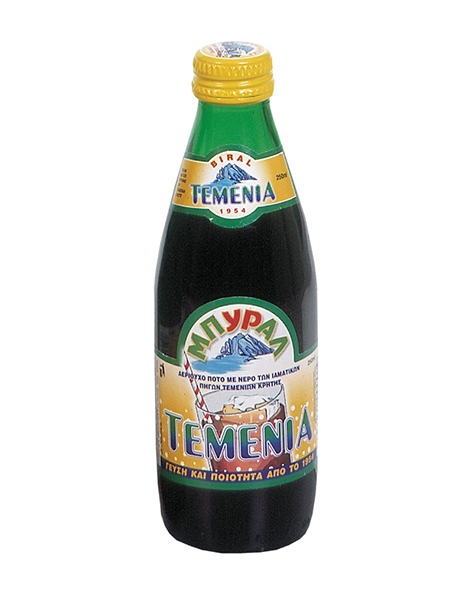
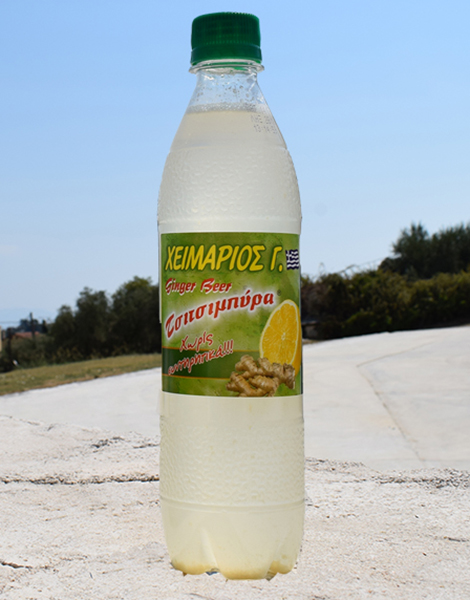
Three Cents – Athens based Three Cents produce soft drinks for bartenders with interesting flavors like pink grapefruit, and Mediterranean bergamot. The strong carbonation makes them perfect for stirring with alcohol. Find them at good liquor stores around the country.
Chio – Masticha is the natural sap from a kind of pistachio tree that grows in Chios. While very specific in flavor, it’s becoming increasingly popular not just among the Greeks, but abroad as well, and masticha flavored soda can be used in place of masticha liqueur as a drinks mixer. Chio makes a good one. Find it at selected shops around Attica.
Iperos – Completely new, and still quite hard to find, are the herbal sodas of Iperos. Two intriguing flavors, lavender and peppermint, are the first to hit the market. Find them at select, high-end stores and restaurants in Thessaloniki and Athens.
Psiloreitis – This Crete-based company named after the island’s tallest mountain makes sparkling “kanelada” and “masticha” flavored soft drinks, along with the more common flavors. You can find them at mini markets, kiosks, restaurants, and cafes around Crete.

